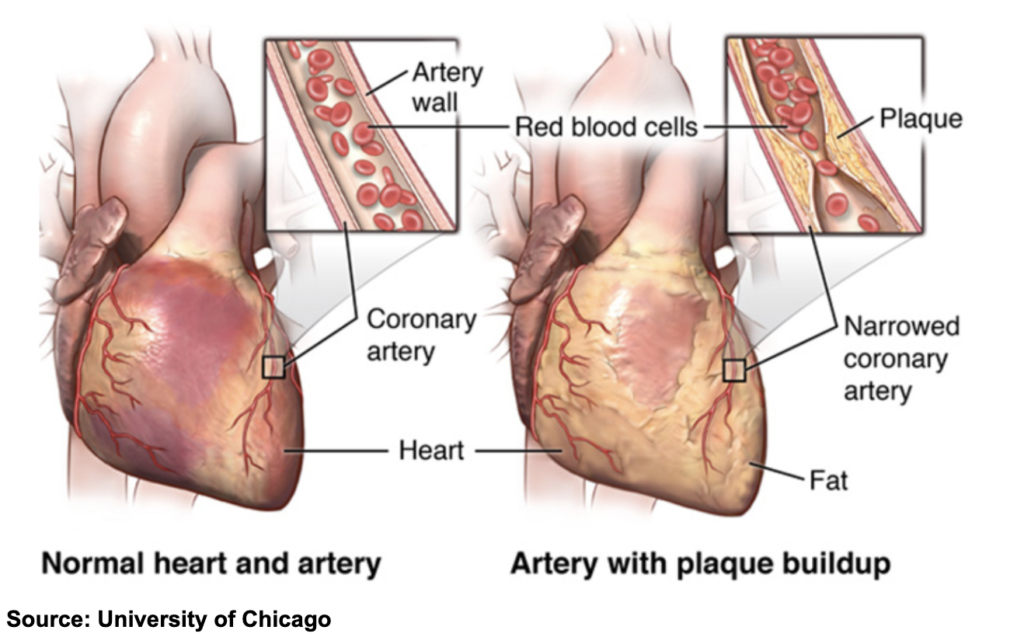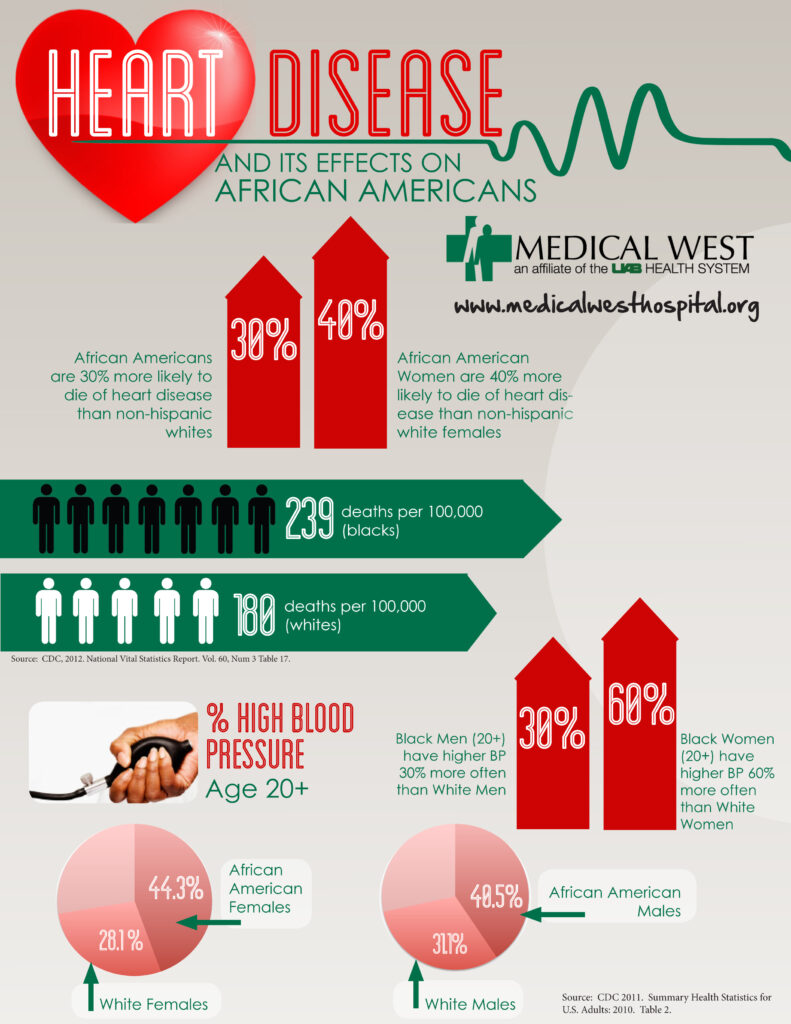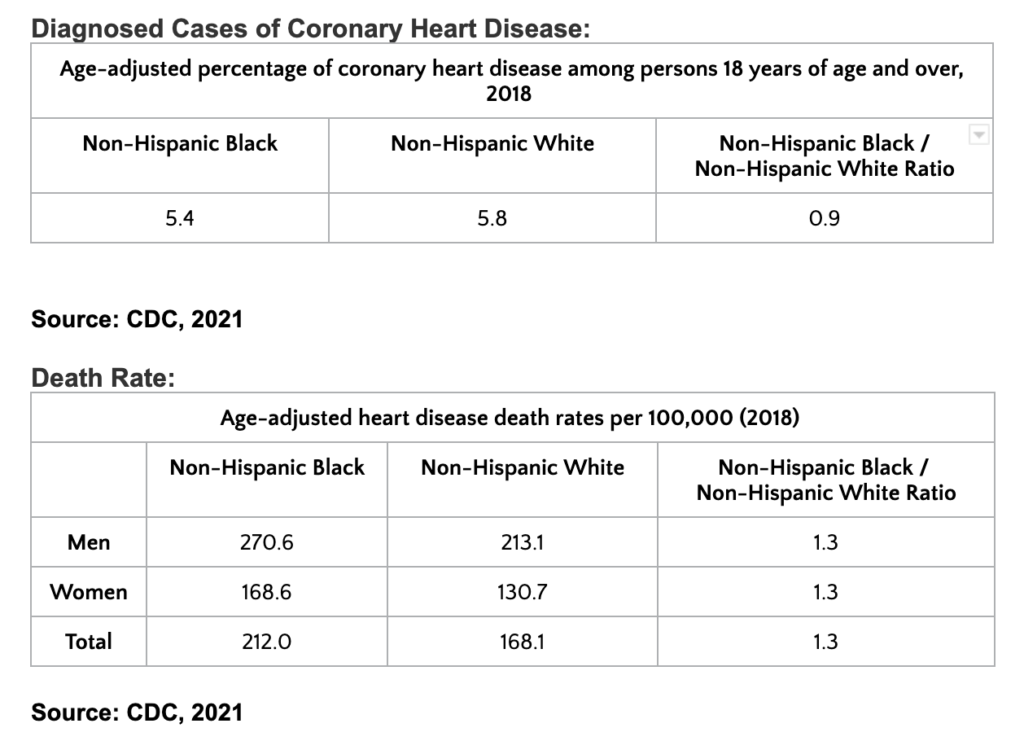heart disease
Although genetics play a factor, there are still many things you can do to lower your risk.
heart disease
the importance of heart health
Although genetics play a role, there are many things you can do to minimize your risk.
What is heart disease?
- The term “heart disease” refers to several types of heart conditions. The most common type of heart disease in the United States is coronary artery disease (CAD), which affects the blood flow to the heart.
- Coronary artery disease (CAD) is the most common type of heart disease in the United States. It is sometimes called coronary heart disease or ischemic heart disease.
- For some people, the first sign of CAD is a heart attack.
- Heart Disease includes numerous problems, many of which are related to a process called atherosclerosis
- Atherosclerosis is a condition that develops when a substance called plaque builds up in the walls of the arteries. This buildup narrows the arteries, making it harder for blood to flow through. If a blood clot forms, it can block the blood flow. This can cause a heart attack or stroke.

symptoms
- Sometimes heart disease may be “silent” and not diagnosed until a person experiences signs or symptoms of a heart attack, heart failure, or an arrhythmia.
- Heart Attack Symptoms – Chest pain or discomfort, upper back or neck pain, indigestion, heartburn, nausea or vomiting, extreme fatigue, upper body discomfort, dizziness, and shortness of breath.
- Heart Failure Symptoms – Shortness of breath, fatigue, or swelling of the feet, ankles, legs, abdomen, or neck veins.
- Arrhythmia Symptoms – Fluttering feelings in the chest (palpitations).
Risk Factors
- Diabetes
- Obesity
- Unhealthy Diet
- Physical Inactivity
- Excessive Alcohol Use
- Family History
Ways to Prevent
- Don’t Smoke
- Eat a diet low in salt and saturated fat
- Maintain a healthy weight
- Reduce and manage stress
- Control high blood pressure, high cholesterol, and diabetes
- Get good sleep. Aim for 7 to 9 hours daily
- Exercise at least 30 minutes a day, most days a week

Women and Heart Disease
How does heart disease affect women?
Despite increases in awareness over the past decades, only about half (56%) of women recognize that heart disease is their number 1 killer.
Learn more facts about women and heart disease:
- Heart disease is the leading cause of death for women in the United States, killing 314,186 women in 2020—or about 1 in every 5 female deaths.
- Heart disease is the leading cause of death for African American and white women in the United States. Among American Indian and Alaska Native women, heart disease and cancer cause roughly the same number of deaths each year. For Hispanic and Asian or Pacific Islander women, heart disease is second only to cancer as a cause of death.
- About 1 in 16 women age 20 and older (6.2%) have coronary heart disease, the most common type of heart disease:
- About 1 in 16 white women (6.1%), black women (6.5%), and Hispanic women (6%)
- About 1 in 30 Asian women (3.2
diagnosis/treatment
Before a heart disease diagnosis is made, your healthcare provider will gather a full medical history and perform a physical exam. If your doctor suspects heart disease, blood tests will be ordered to check your cholesterol and triglyceride levels, as well as look for proteins that could signal heart failure or plaque in your arteries. A chest X-ray will also help your doctor look for signs of heart failure or heart valve problems.
Depending on the type of heart disease your doctor thinks you may have, other tests may include:
Electrocardiogram (ECG) This test records electrical signals from the heart that can help determine abnormalities in the heart’s rhythm and structure.
Stress Tests These involve elevating your heart rate with exercise or medication while performing ECG and imaging of the heart to see how it performs.
Echocardiogram This ultrasound of your heart displays detailed images of its structure and how it functions.
Holter Monitors Allowing for a continuous ECG through a portable device you wear for 24 to 72 hours, this type of monitoring can detect heart rhythm abnormalities not detected on a standard resting ECG.
Computerized Tomography Scans produce detailed images of your heart and can help doctors detect calcium in the coronary arteries.
Magnetic Resonance Imaging A powerful magnetic field produces detailed images of the structures within and around the heart. It can also detect scars present in the heart muscle. This will help your doctor evaluate your heart’s anatomy and function.
Cardiac Catheterization This test can help your physician detect abnormalities in the blood flow through your heart, blood vessels, and valves. It involves a short tube inserted into a vein or artery in your groin or arm, into which a hollow, longer tube is inserted. With the help of imaging on a monitor, your doctor will guide the catheter through the vein or artery until it reaches your heart.
Treatment
Heart disease treatment depends on the cause and type of heart damage. Healthy lifestyle habits — such as eating a low-fat, low-salt diet, getting regular exercise and good sleep, and not smoking — are an important part of treatment.
Medications – If lifestyle changes alone don’t work, medications may be needed to control heart disease symptoms and to prevent complications. The type of medication used depends on the type of heart disease.
Surgery or Other Procedures – Some people with heart disease may need a procedure or surgery. The type of procedure or surgery will depend on the type of heart disease and the amount of damage to the heart.
STATISTICS FOR PEOPLE OF COLOR

- In 2018, African Americans were 30 percent more likely to die from heart disease than non-Hispanic whites.
- Although African American adults are 40 percent more likely to have high blood pressure, they are less likely than non-Hispanic whites to have their blood pressure under control.
- African American women are nearly 60 percent more likely to have high blood pressure, as compared to non-Hispanic white women.

Learn more about the Stats at GRAAHI's Health Equity Index
Links, Tools, Resources
Apps:
Heart Quiz
https://ketteringhealth.org/services/heart-vascular-care/heart-quiz/
Websites
https://www.mayoclinic.org/diseases-conditions/heart-disease/symptoms-causes/syc-20353118
https://www.cdc.gov/wisewoman/
https://www.goredforwomen.org/en
Association of Black Cardiologists
Grand Rapids/Kent County/Michigan Resources
https://www.heart.org/en/affiliates/have-faith-in-heart-west-michigan
https://www.medifind.com/specialty/cardiology/US/MI/Grand%20Rapids
https://www.fox17online.com/news/morning-news/cardiovascular-care-leaps-forward-in-west-michigan
Latest Advances, Clinical Trials & Breakthroughs in Heart Disease
https://www.sciencedaily.com/releases/2022/12/221207142205.htm